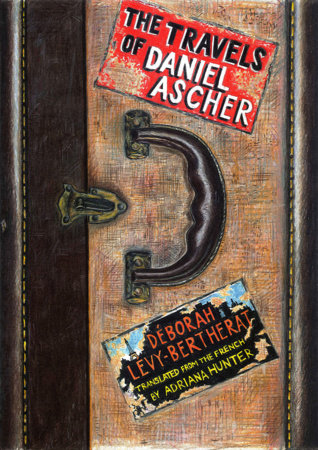READERS GUIDE
1. Daniel Roche is a writer, a storyteller. Who else tells stories in the novel, and what are the stories they tell? Other than the stories in the Black Insignia series, what stories does Daniel tell?
2. The protagonist of The Black Insignia is asked, “Deep down, Peter, what is it that makes you love adventure?” Do you think Daniel Roche loves adventure? What prompts Hélène to start going on her own “adventures,” and how does her discovery change her life?
3. In what ways is Hélène’s detachment or discomfort within her newfound group of friends (p 15, “Hélène laughed along with them, but she wasn’t sure it was funny”; p 27, “but her voice got lost in the racket and no one heard her”) similar to Daniel’s relationship with his adopted family? Is this alienation present in any other part of the novel?
4. On page 29 the narrator explains, “[W]ars kill parents, no need to picture how it actually happens, and she glossed over the missing episode in the same way that, as a child, she used to skip the page where the mother dies in the book about Babar the elephant.” In what ways is the novel a psychological study of Hélène? Consider her initial indifference toward the Black Insignia books. How does her reaction to or opinion of the books change? What prompts this change? How does Hélène’s relationship with the books parallel her relationship with Daniel?
5. Compare Hélène’s relationship with the Black Insignia books to Guillaume’s and other fans’ relationship with them. Daniel and his books create a community among strangers, as shown in the interaction between Guillaume and the saleswoman on page 76. What kind of effect do he and his books have on the Roche family?
6. Where do you think Daniel spends all the time he doesn’t spend at the “many Roche family reunions” (p 9)? The Roche family is “bound for generations to their mountains in the Auvergne” (p 18). How would you describe the Ascher family? How would you describe Daniel Ascher, as Hélène comes to know him by the end of the novel?
7. What is the relationship between Daniel’s life as Daniel Roche and his fake travels, and his buried life as Daniel Ascher and his secret apartment? What does it mean that the Roche family is so dismissive of the Black Insignia books?
8. What is the relationship between fiction, discovery, and personal history? What is the significance of Daniel having written of his lost life as Daniel Ascher in the pages of
The Smallest Atlas in the World?
9. Describe Hélène’s personality at the beginning of the novel and compare it to her initial impression of Daniel. As her understanding of Daniel deepens and changes, does Hélène herself change?
10. Guillaume and Daniel are both “still passionately connected with anything that reminded [them] of [their] childhood” (p 4). In the novel, is this preoccupation with childhood gendered? Why do you think Guillaume and Daniel both value childhood so much? How do their appreciation of childhood differ? How do Guillaume’s and Hélène’s appreciation for Daniel differ?
11. What is the relationship between Hélène’s initial aversion to The Black Insignia and Daniel, and her initial rejection of her ancestry? (See page 132: “Her ancestors were Chambons and Roches, Auvergne stock whose names and dates were known, the places where they were born and where they died, she’d seen their houses and their tombs in the cemetery.”) Are there any other instances where she rejects or refuses the knowledge of something?
12. On page 168 we’re told, “She was no longer looking for Daniel; she’d found him. She was at 16 rue d’Odessa.” Do you think Daniel has been searching for himself, just as Hélène has been? Considering how often Hélène feels that Daniel indulges in “performance” (pp 17, 54, 147), is there an irony to her finding the “real” Daniel in his reconstruction of the past?

